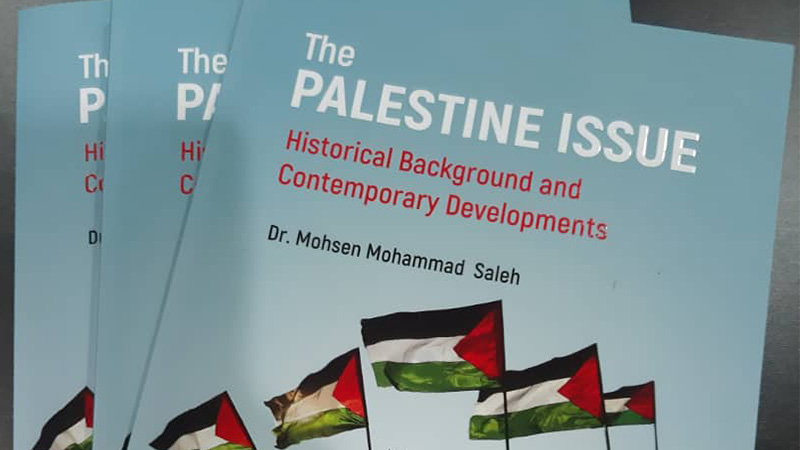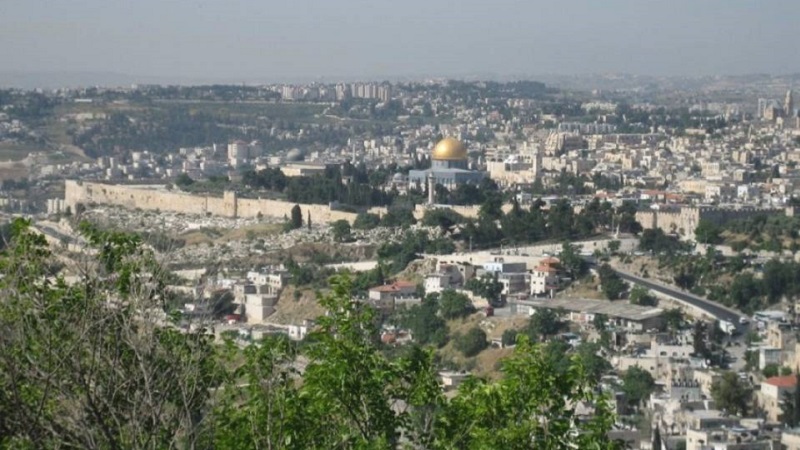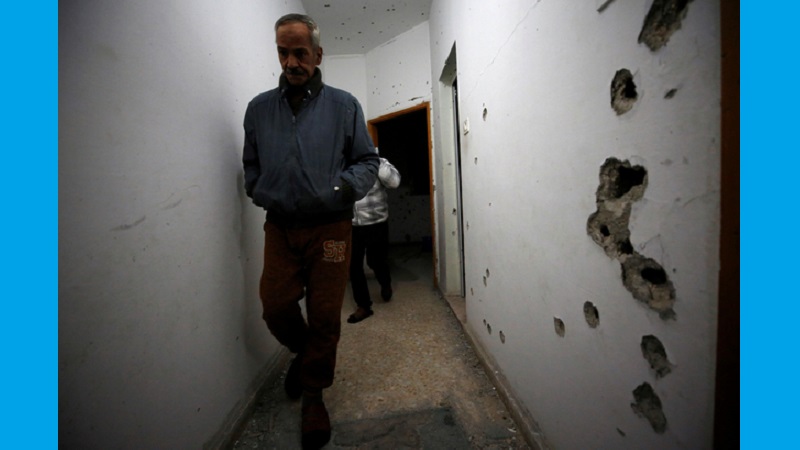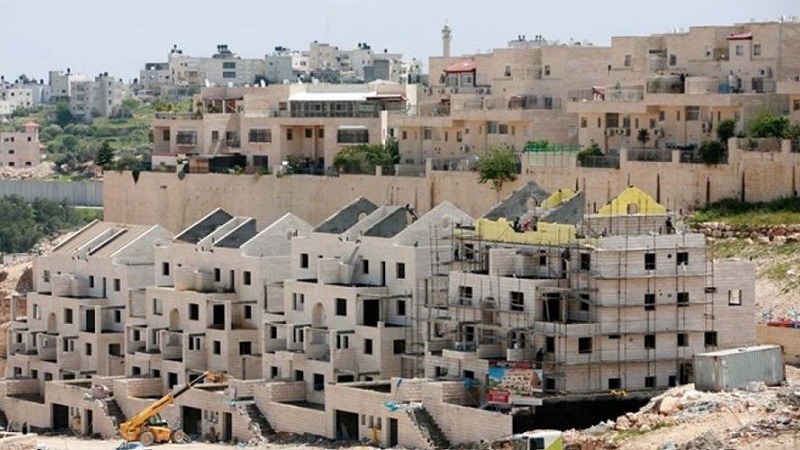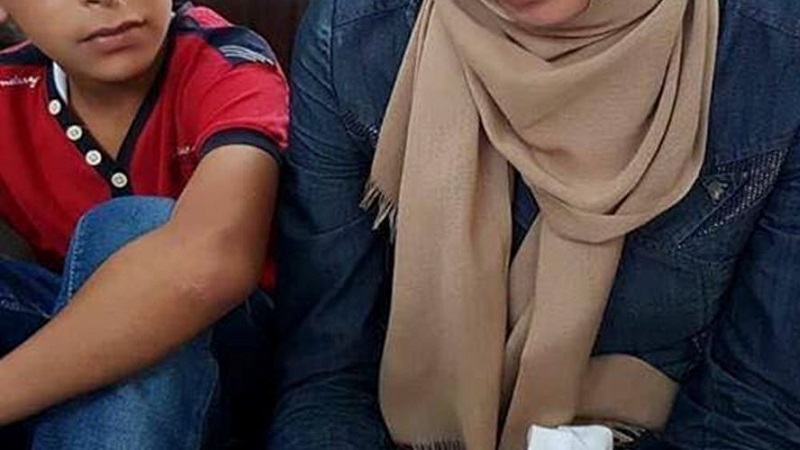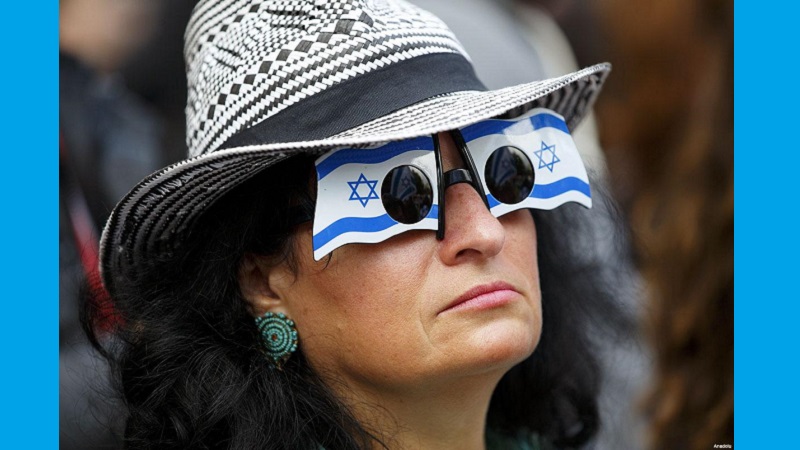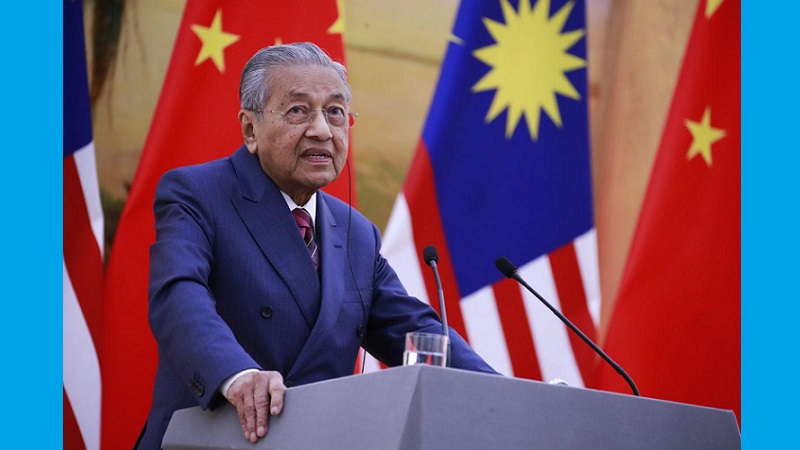Selling Al-Quds (Jerusalem): Middlemen sell Jerusalemite homes to settlers
Ahad, 17 Mac 2019 3:35:05 PG
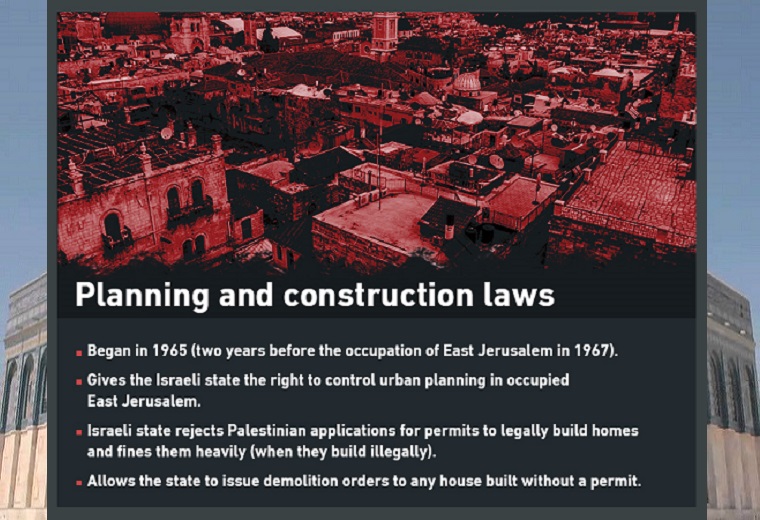
In the ongoing struggle to reclaim their homeland, the Palestinian Authority has always seen occupied East Al-Quds (Jerusalem) as the future capital of a Palestinian state, but the situation on the ground is rapidly changing as more and more Palestinian homes are taken by Israeli entities.
While this has been happening for decades, according to Palestinians in East Al-Quds (Jerusalem), there are new agents involved: Palestinian middlemen who act as fronts in the purchase - allegedly backed by settler organisations and, in some cases, individuals in Arab countries.
Getting permission to build a home in Al-Quds (Jerusalem) is nearly impossible. There is little land allocated for construction and Israeli authorities usually deny Palestinian applications for building permits. Palestinians are often forced to build their homes "illegally", without permits.
When they build, "the municipality of Al-Quds (Jerusalem) starts issuing demolition orders and imposes huge fines - up to hundreds of thousands of dollars - on someone already financially overburdened," explained Khaled Zabarqa, a Jerusalemite lawyer who works with families whose homes have been acquired by settlers.
Under financial pressure, many families choose to sell their homes, so they look for credible Palestinian buyers so as not to sell to settlers.
Enter Palestinian buyers with cash to pay for the homes, sometimes well over market price, and whose profiles are acceptable to sellers and the Palestinian authorities who vouch for their credibility.
These Palestinian "investors" will then sign over their newly bought East Al-Quds (Jerusalem) real estate to offshore companies - favoured by settler organisations - which later transfer ownership to a settler organisation.
Silwan
In 2014, in the historically Palestinian neighbourhood of Silwan, two Palestinian brokers were involved in purchasing a number of homes that ended up with Israeli settlers: Shams al-Din al-Qawasmi and Fareed Hajj Yahya.
Al-Qawasmi told sellers he was buying their homes on behalf of Emirati charities and Hajj Yahya was known to work for an Emirati charity.
"When a person agrees to sell ... they've exhausted all options ... they can no longer manage the debts they owe. When an Emirati organisation offers to purchase the property, they see it as a chance to get out of the mess they're in," said Zabarqa, the lawyer.
Mohamed Baydoun, a Silwan landlord, heard that al-Qawasmi had bought a home nearby for three times its value - an indication the purchase is actually for settlers - and confronted him.
"At first, he denied it. Then he admitted that he had bought it for the Emirates," Baydoun told Al Jazeera. "I asked him, 'What would the UAE want with it? He said they wanted it to build a kindergarten or a clinic or something. I told him: 'That home is going to settlers, Shams'."
It did.
As did one of Baydoun's own properties, sold by his son to Hajj Yahya, the other Palestinian broker behind the 2014 deals. The two bought and allegedly passed on about 25 Silwan properties to Israeli settlers.
"They want the Palestinians involved in selling real estate ... so, in the future, if there is someone to blame for losing Al-Quds (Jerusalem), it's the Palestinians, not the Gulf or other Arab states," says Professor Abdulsattar Qassim of An-Najah University.
Unlikely Palestinian player
Fadi el-Salameen, a Palestinian businessman who tried to buy an East Al-Quds (Jerusalem) home, claimed he wanted to buy real estate to stop it from going to settlers and that he had sought financing for the purchase from individuals in the United Arab Emirates.
His plans were cut short by another, surprising actor, much closer to home than the UAE: the Palestinian Authority (PA).
The PA refused to give el-Salameen clearance for the sale and froze his company's bank account for "suspicious funds".
According to Palestinian Attorney General Ahmad Barak, el-Salameen's account received funds only from a company owned by Mohammed Dahlan, a major political rival of Palestinian President Mahmoud Abbas.
Dahlan has lived in the UAE since 2011, where he is a special adviser to Crown Prince Mohammed bin Zayed.
Kamal al-Khatib, deputy leader of the Islamic Movement in Israel, also believes there is more to the story of financing from the UAE. "Emirati businessmen are behind this deal, and ... no doubt that they got help from certain Palestinians, who help them pass these deals," he said.
"Most of the brokers are Palestinians and those that receive bribes from these brokers are influential Palestinians from within the Palestinian Authority," Qassim said.
The PA has no actual power in Al-Quds (Jerusalem), but it maintains a Ministry for Al-Quds (Jerusalem) Affairs and a Governorate of Al-Quds (Jerusalem) from the West Bank, which it governs.
In recent years, Jerusalemite homeowners started turning to the governorate for Palestinian intelligence clearance on potential buyers, hoping to keep their homes away from settlers.
"The governorate gives the name of the potential buyer to the intelligence services. They do the necessary research ... after which we give approval - conditional approval," says former governor of Al-Quds (Jerusalem) and current PA minister for Al-Quds (Jerusalem) affairs, Adnan al-Husayni.
Al-Qawasmi and Hajj Yahya had received PA clearance.
Al Jazeera tried to reach al-Qawasmi but received no response. Hajj Yahya denied the accusations and claimed he had proof he did not sell to settlers. He, however, failed to show up for an interview with Al Jazeera.
Khaled al-Attari, a well-known Palestinian businessman working between Ramallah and Al-Quds (Jerusalem), also received PA clearance to buy the same East Al-Quds (Jerusalem) home, the Joudeh home.
The Joudeh home sale
Adeeb Joudeh, a Muslim Palestinian entrusted with the key to the Church of the Holy Sepulchre, told Al Jazeera he tried to make sure the home he was selling was going to a trustworthy buyer.
"I spoke to the governor at the time, Adnan al-Husayni, he spoke well of him. I spoke to a number of Palestinians, they all spoke well of Khaled al-Attari. Unfortunately, they were wrong," said Joudeh.
As news spread that ownership of Joudeh's home had been transferred to settlers, his neighbours turned their anger towards him.
Al-Attari denied ever owning the house, telling Al Jazeera that an agreement had been drawn up but that didn't indicate the purchase was complete.
However, Israeli land registry documents obtained by Al Jazeera show the transfer of ownership from the Joudeh family to al-Attari on April 23 and then to Daho Holdings - an offshore company - on the same day; al-Attari was the signatory on behalf of Daho.
A communal mediation committee was called to bring Joudeh and al-Attari face to face and get to the bottom of the issue, where al-Attari denied selling the home to settlers. Soon after the committee, he stopped returning Al Jazeera's calls.
Al-Attari seems to have highly placed allies who helped him. Adnan al-Hosayni, former PA governor of Al-Quds (Jerusalem), signed off on the deal between al-Attari and Joudeh. In addition, Haaretz has said that al-Attari is close to Majed Faraj, head of PA intelligence.
The spokesman for the PA's security chief's office did not respond to Al Jazeera's request for comment.
No accountability
Because the PA has no jurisdiction over Al-Quds (Jerusalem), finding who is to blame for these sales is complicated. While the PA intelligence clearance given to the buyers encourages the homeowners to sell, the sales themselves are not overseen by PA bodies.
"We have no one to turn to ... Anyone can sell ... there is no responsible authority we can go to for help. I have documents and papers - but who do I take them to?" said Kamal Qweider, an Old City resident who runs a popular Facebook page tracking home acquisitions.
The PA announced an investigation into what happened with the Joudeh house sale, but the findings of past investigations were never publicised, adding to a mounting frustration among Jerusalemites already incensed that these brokers were given intelligence clearance.
In the meantime, settlers continue to move into Palestinian neighbourhoods all over the city, where their presence becomes a fact on the ground that complicates any future negotiations on East Al-Quds (Jerusalem), the intended capital of a future Palestinian state.
Source: Aljazeera


